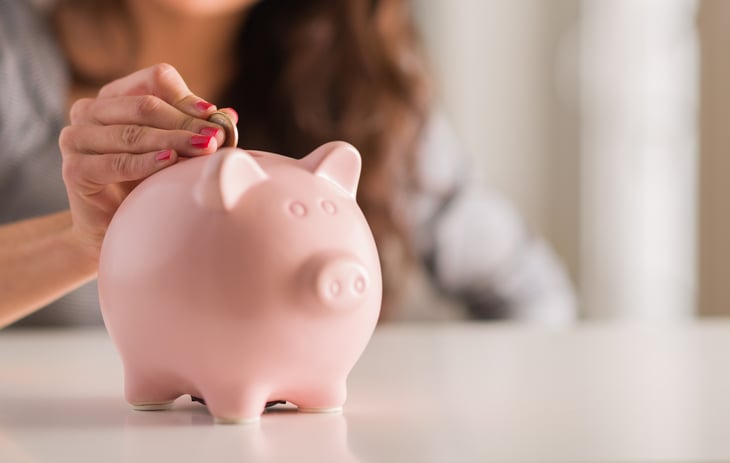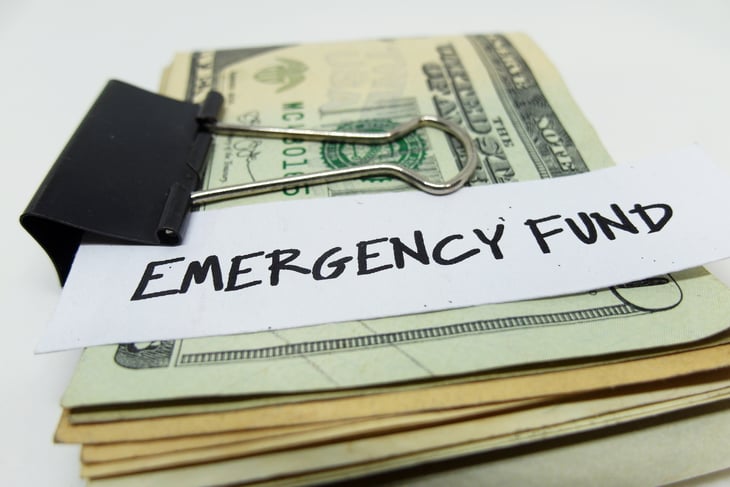
Being money smart is about more than having a budget and eliminating dumb purchases.
It means creating a financial foundation that will carry you and your family comfortably through whatever life throws your way.
To find lasting financial security, you need these products.
1. A fee-free checking account

You need a centralized place for your money, so look for a free checking account. Fee-free accounts are a bit harder to find these days, but some banks and credit unions still offer them.
Along with your checking account, sign up for a debit card. Such cards can be useful, but don’t assume they are great for all purchases. For more, check out “9 Things You Should Never Put on a Debit Card.”
2. A high-yield savings account

Savings rates have been low for years, but you don’t have to settle for the bottom of the barrel. To find the highest rates, search for a high-yield savings account.
Look to online banks such as SoFi for better interest rates.
3. Emergency savings

Every household should have an emergency fund — it’s your own personal form of insurance. Typically, you’ll want your fund to be large enough to pay at least three to six months’ worth of expenses.
4. Health insurance

Health care can come with an enormous price tag, especially if you develop a serious health condition.
Even the most robust people can get into car accidents or be struck down by devastating illnesses. Unless you’re worth millions and can easily pay your own medical bills, going without health insurance is just plain dumb.
A health savings account is another great tool for shoring up your financial security and keeping health care costs down. And it also can double as an extra retirement account. For more on HSAs, check out “3 Ways a Health Savings Account Can Improve Your Finances.”
5. Homeowners or renters insurance

If your home burns down, will you be left out on the street? That’s what happens to some people who fail to insure their property.
Homeowners insurance policies are relatively inexpensive for the coverage they provide. These policies typically pay to rebuild your house in the event of a total loss, such as from a fire. They also generally give you the funding to repair storm damage and vandalism.
If you’re renting, don’t think your landlord’s insurance policy will pay for your stuff. Instead, cover yourself with some cheap renters insurance.
6. Auto insurance

Aside from your home, your car may be your most valuable asset.
While many states require you to carry a minimum level of coverage, you may want to consider getting additional car insurance coverage, depending on your assets and income.
Comparing car insurance is easier than ever, and you can get competitive quotes in just minutes. So there’s no reason not to shop around early and often.
7. Disability insurance

Not having disability insurance can trip up some otherwise money-savvy individuals.
Disability insurance provides money in the event you are unable to work for an extended period. The details may vary by insurer and policy.
If you’re on the fence about whether to buy disability insurance, consider whether you have a big enough emergency fund to pay the bills if you are unable to work.
8. Life insurance

If you were to die tomorrow, could your family pay the bills? Do they even have the cash to bury you?
Unless you have plenty of cash in your coffers, you need life insurance. And even if you are wealthy, you might want a policy to help your family pay off estate taxes.
Beyond that, life insurance can come with added bonuses that make it a smart buy. For example, some policies offer living benefits that let you tap into your death benefits if you’re terminally ill.
Getting life insurance traditionally has been a bit of a hassle, but apps are changing everything. Money Talks News partner Bestow can provide you with an online quote for term life insurance in minutes.
9. A retirement fund

Someday you’ll want to retire, but that will be difficult if you plan to live off Social Security alone. The government-run program was never meant to be the sole source of anyone’s retirement funds.
So, make sure you have another source of income for your golden years. Your first stop for retirement savings should be a 401(k) plan if your employer provides a match of any kind. After that, look for a tax-sheltered plan such as an individual retirement account.
10. College savings

If you’re childless and plan to keep it that way, you get a pass on this final must-have financial product. Most everyone else should start planning for college now.
Even if you intend to have your children pay their own way, you never know what the future may hold, or how your views may evolve over time. It is best to put some money aside in savings now just in case.
The 529 college savings plans and Coverdell educational savings accounts are common ways to get tax benefits for your kid’s college fund. However, you must use the money for educational purposes or you’ll get hit with a tax penalty.





Add a Comment
Our Policy: We welcome relevant and respectful comments in order to foster healthy and informative discussions. All other comments may be removed. Comments with links are automatically held for moderation.